- News
- Reviews
- Bikes
- Components
- Bar tape & grips
- Bottom brackets
- Brake & gear cables
- Brake & STI levers
- Brake pads & spares
- Brakes
- Cassettes & freewheels
- Chains
- Chainsets & chainrings
- Derailleurs - front
- Derailleurs - rear
- Forks
- Gear levers & shifters
- Groupsets
- Handlebars & extensions
- Headsets
- Hubs
- Inner tubes
- Pedals
- Quick releases & skewers
- Saddles
- Seatposts
- Stems
- Wheels
- Tyres
- Tubeless valves
- Accessories
- Accessories - misc
- Computer mounts
- Bags
- Bar ends
- Bike bags & cases
- Bottle cages
- Bottles
- Cameras
- Car racks
- Child seats
- Computers
- Glasses
- GPS units
- Helmets
- Lights - front
- Lights - rear
- Lights - sets
- Locks
- Mirrors
- Mudguards
- Racks
- Pumps & CO2 inflators
- Puncture kits
- Reflectives
- Smart watches
- Stands and racks
- Trailers
- Clothing
- Health, fitness and nutrition
- Tools and workshop
- Miscellaneous
- Buyers Guides
- Features
- Forum
- Recommends
- Podcast
feature
Rim brakes really are dead! Here's why the British National Hill Climb champion has switched to disc brakes
Up until now, there has always been one safe haven for rim brake bikes...hill climbing, but has Andrew Feather's win at the 2023 National Hill Climb on his new disc brake bike put an end to this? We've asked him the big questions and drilled down into his component choices to find out!
Over the past decade or so, many road bikes have gone from externally cabled, lightweight, round-tubed designs to much bulkier, aero steeds which now nearly always have disc brakes. Whether you love them, hate them, or have no real strong opinion on disc brakes, it is undeniably getting rather tricky to buy a new bike with rim brakes, because a number of the top bike brands no longer offer them.
However, as cyclocross bikes, gravel bikes, the aforementioned road bikes and even time trial bikes have turned their back on the trusty rim brake, there has, up until now at least, always been one genre of cycling where rim brakes have continued to rule supreme - hill climbing!
We were slightly surprised, then, when four-time British National Hill Climb champ Andrew Feather rocked up on his new disc brake bike which he has since ridden to victory at this year's event.
Feather completed the Struggle in an impressive 11 minutes and 48 seconds, outriding Ed Laverack in second place by a notable 18-second margin and leaving Paddy Clark in third a full 1 minute and 17 seconds behind.
> The stuff they never tell you about rim brakes
In a hill climb - the quintessentially British racing format which sees competitors aim to get from the bottom to the top of a hill in as little time as possible - it's incredibly rare that you would ever need to even touch your brakes, and it’s fair to say that they’re only on hill climb bikes to satisfy the regulations and keep the commissaires happy.
Therefore, when competitive hill climbers build custom light road bikes to drop grams and give themselves every advantage, they tend to always go for the most gravity-defying option. Up until now, common knowledge was that such a gravity-defying machine would have to be built around rim brakes to keep things as light as possible.
> The lightest road bike frames and components in the world
The last time we caught up with the very appropriately-named hill climb expert, Feather had just won the 2022 hill climb champs aboard a custom Cannondale SuperSix Evo Hi Mod weighing in at just 5.39kg. This year, he's (arguably) upgraded to the newer generation SuperSix Evo LAB71, which has disc brakes.
While this new build is still super light at under 6kg, why would you want to add weight when the aim of the game is getting up a hill as quickly as possible?
"Disc brake bikes in general are becoming lighter and lighter", says Feather.
"The frame is generally more aero than the previous iterations... there are often certain parts of a climb where you are going downhill or it's flat, so those advantages will come into play."
The other bits
That's not to say Feather hasn't attempted to get the bike as featherweight as possible, adorning it with components from lightweight carbon specialists Schmolke. The saddle, stem and handlebars are made by the Germans, and that saddle isn't as rough as it looks, so we're told: "I actually find the harder saddles are more comfortable. Yes it looks very hard, but it's fine if you've got in the right position and are used to riding like that."
Although some hill climbers go the extreme length of cutting the drops off their handlebars to cut even more weight, Feather says he isn't a fan: "There just such nice bars! I'm using the bike as an ordinary bike as well, so I don't really fancy riding around with bars cut off. It would just look really ugly."
Things get more technical with Feather's 3D-printed out-front computer mount, that was specially made by a Swedish farmer (who happens to also be a 3D-printing expert) to fit the Schmolke stem and bar combo.
While he doesn't tend to look at power for most of his effort, Feather also opts to run a Rotor INspider power meter during races despite the slight weight penalty: "I tend to do my best rides when I'm not looking at my power, but it's always handy, particularly at the start, to have a quick glance at power to make sure you're not setting off at 600 watts for a ten-minute effort," says Feather.
"It's still 150g, but I'd rather have that on and be able to assess the data than not have it on."
British wheel brand Hunt has done Feather a favour this year by launching some disc brake versions of its Hill Climb SL wheels. They weigh in at just 963g and "ride really nice" according to Feather.
While Hunt was still able to make the wheels super light for disc brakes, incorporating more popular tubeless tyre compatibility without adding significant weight wasn't so easy, so the wheels take tubular tyres.
Disc brakes??
Even though the disc brake switch has added some weight, that's not to say Feather hasn't tried his hardest to reduce it as much as possible. The rotors front and rear are 140mm, rather than the more common 160mm front/140mm rear combination. Although the rotors on Feather's built bike are Shimano Dura-Ace, he's planning to replace them with some titanium ones from US specialists Carver Bikes that weigh just 49g.
"I haven't used them yet, but I'm really interested to see what they're like," he says.
So, back to our original musings: what's the explanation for the switch, especially since this bike is around half a kilogram heavier than Feather's national title-winning steed we saw last year? Are rim brakes truly dead?
"I think [rim brakes aren't dead] at the moment, there are still rim brake bikes around, but if you look at the latest technology it is all disc really", says Feather.
"The weights are coming down and the margins are pretty small", says Feather.
So, there you have it. Even the best hill climber in the country has made the switch to disc brakes.
Now that discs have infiltrated the top of the hill climbing scene, do you see any way back for road bikes with rim brakes? Let us know in the comments as always...
Jack has been writing about cycling and multisport for over a decade, arriving at road.cc via 220 Triathlon Magazine in 2017. He worked across all areas of the website including tech, news and video, and also contributed to eBikeTips before being named Editor of road.cc in 2021 (much to his surprise). Jack has been hooked on cycling since his student days, and currently has a Trek 1.2 for winter riding, a beloved Bickerton folding bike for getting around town and an extra beloved custom Ridley Helium SLX for fantasising about going fast in his stable. Jack has never won a bike race, but does have a master's degree in print journalism and two Guinness World Records for pogo sticking (it's a long story).
Latest Comments
- Surreyrider 1 sec ago
If I had to pick an annual race (bar Covid) I'd go for Paris-Roubaix....
- lesterama 26 min 35 sec ago
Great question! They are for MTB. Not sure for road.
- Cycle Happy 27 min 37 sec ago
Remaining articulate, intelligent and calm throughout like that whilst somebody is intentionally being threatening and abusive to not just yourself...
- hawkinspeter 1 hour 13 min ago
I kind of agree with that too, though the cost is probably not even a blip compared to their other costs. What would be interesting is comparing...
- hawkinspeter 1 hour 17 min ago
I share that hope too. I think it's slightly more complicated as the lower courts ordered that he had to be returned and now the Supreme Court have...
- Hirsute 2 hours 18 min ago
Although since September:...
- hawkinspeter 4 hours 47 min ago
I've got a pair of these shoes in the wide fitting and they're very comfortable. I also bought the Vaypor inner soles to go with them which come...
- SecretSam 5 hours 14 min ago
I think it's also worth noting that shoe fits change between shoes within the same brand's range - for example, my bike fitter told me that my...
- Secret_squirrel 5 hours 44 min ago
Seems a bit of a missed opportunity with such a deep unit not to include a little side window for better coverage....
- Paul J 5 hours 52 min ago
No video of the pro-am bike race? Shame.

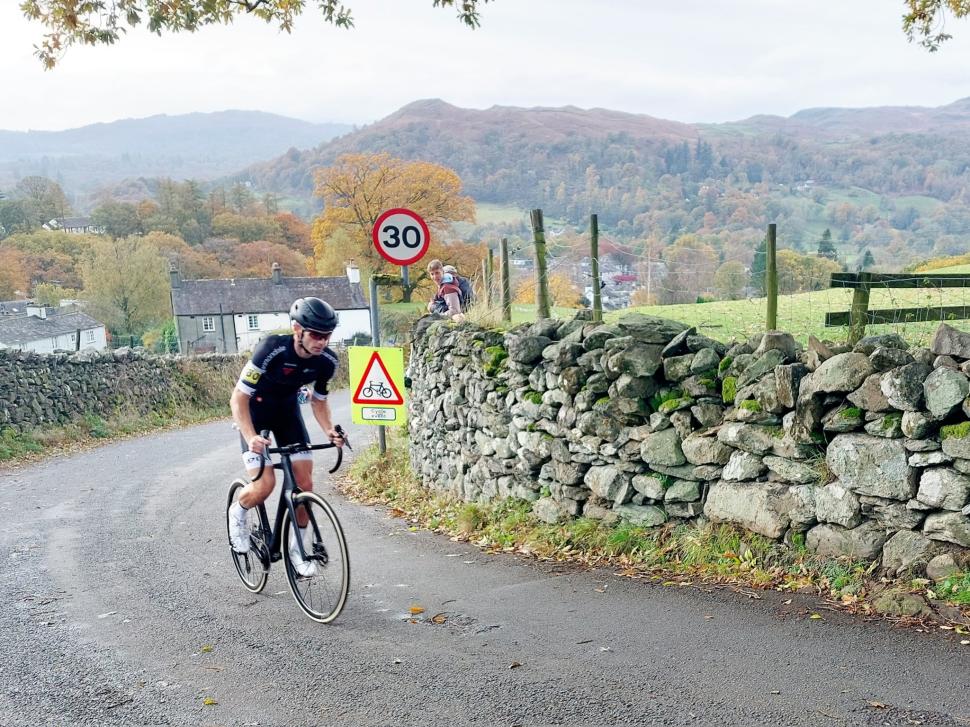
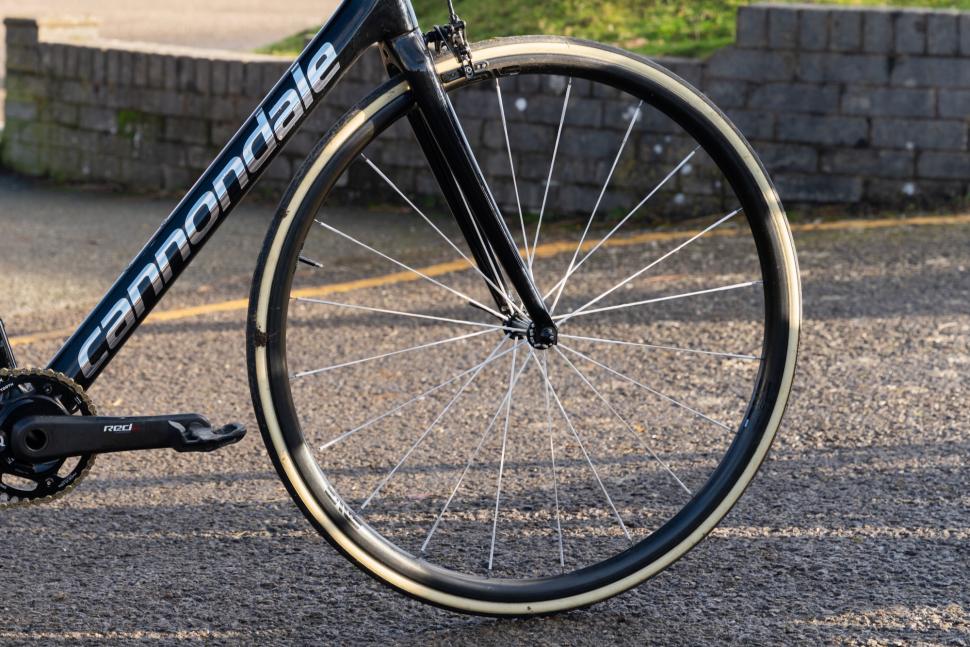

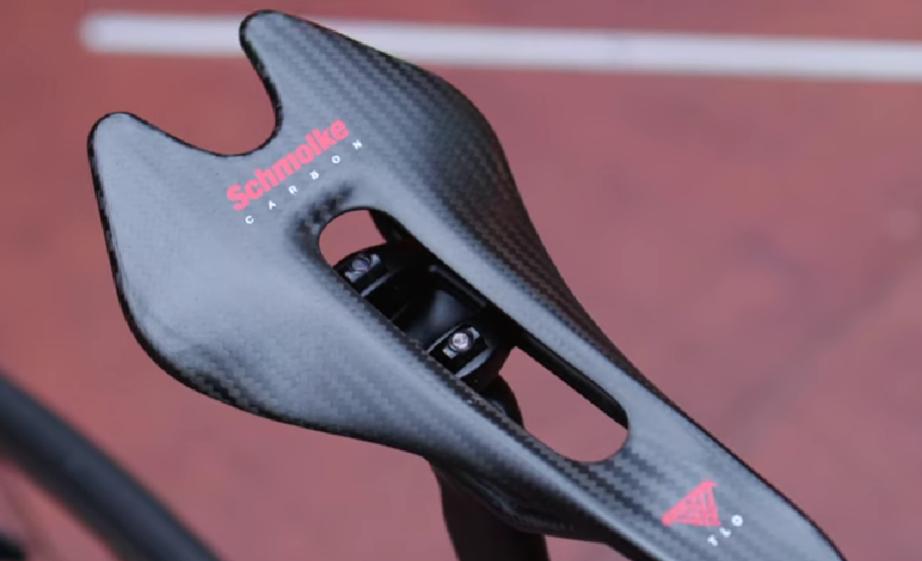
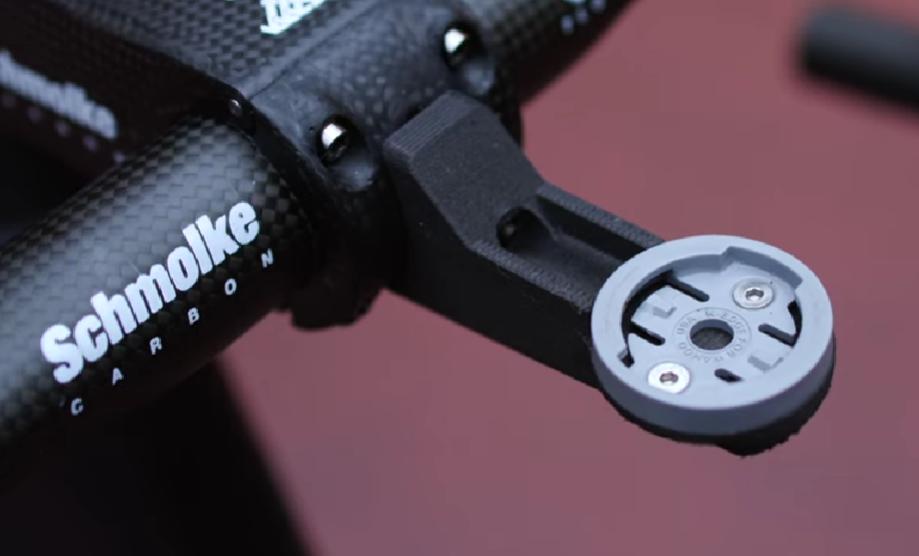

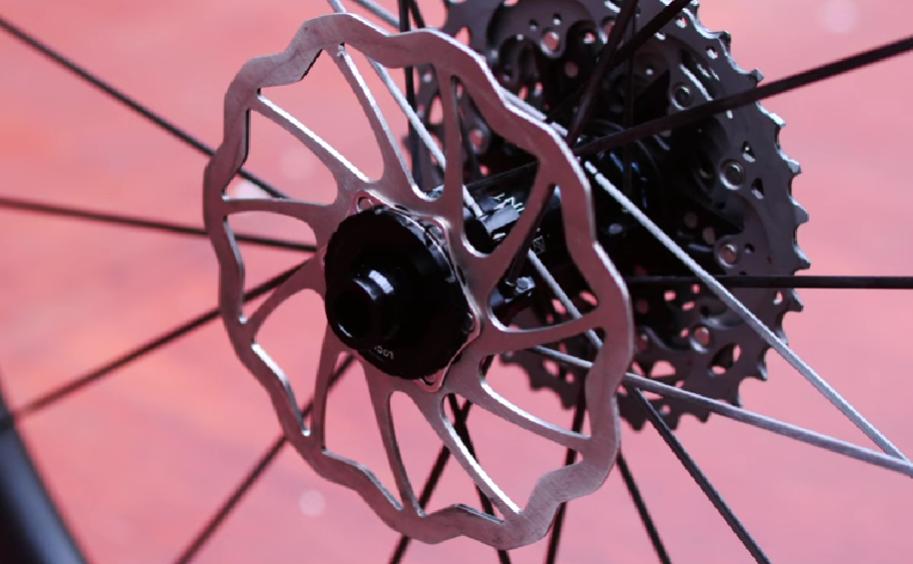
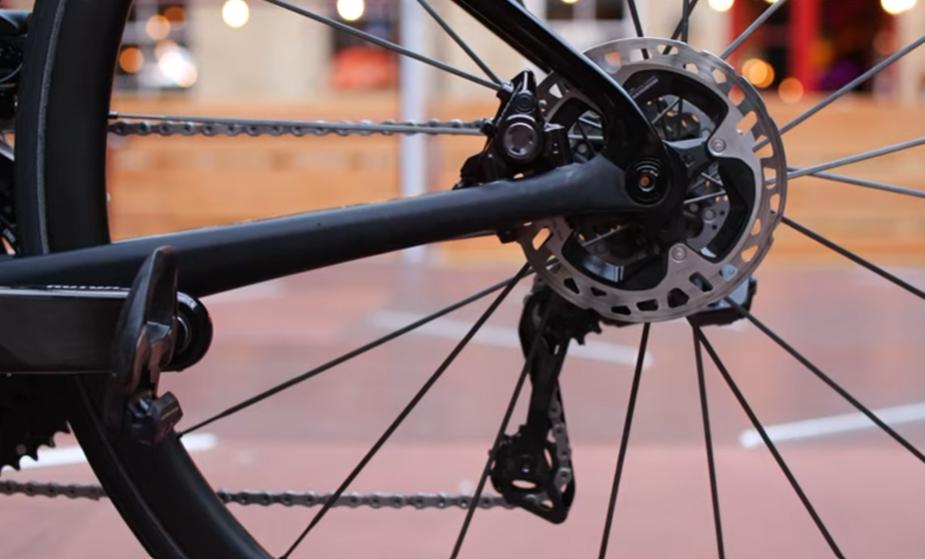
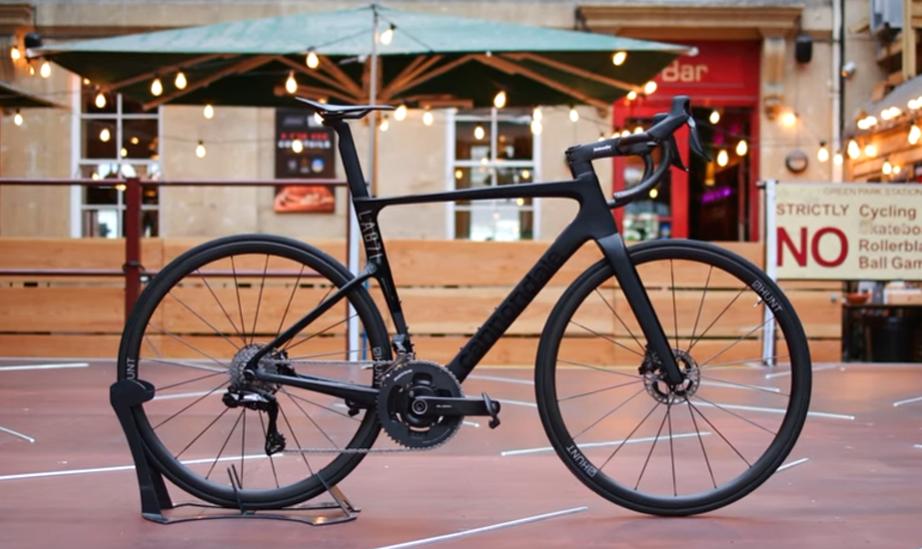
Add new comment
62 comments
I think it's interesting that another discipline where rim brakes are still preferred is one that arguably has the most demand on braking; trials riding.
Many winning trials riders stiil seem to opt for hydraulic rim brakes over even the best 4-pot disc brakes.
Here's all the action from the NHC. No talking heads.
https://youtu.be/r3A23Y69m2k
https://youtu.be/IRhJwcZ6rOk
How much did Cannondale pay him ?
Rim brakes will never die because the elegance of a classic Italian steel road bike lives forever.
I clearly remember, back in '48, saying, "Hub gears will never die out because the simple beauty of their design lives forever."
I wonder whether your prediction will fare any better than mine?
I've bought two brand new bikes in the last two years. One came with a Sturmey Archer 3 speed, and one with an Alfine 8.
Which doesn't in any way convince me that hub gears are anything other than yesterday's technology for the huge majority of cyclists.
Slight correction there: [...huge majority of cyclists] in the UK.
Meanwhile where there are lots of people cycling (but would you call them cyclists?) it seems they are the rule, rather than the exception. (Also good article here).
Depends what you want. Are you perhaps concerned about performance (maybe you race? Maybe you feel you have to race, sharing the roads with cars in the UK?). Perhaps you're an "enthusiast"? And maybe you enjoy regularly cleaning, maintaining and replacing parts? Then maybe external gears are "better" for you.
On the other hand if you just want to get on your bike and go somewhere you might not be worried about a couple of hundred grams here or there or a drivetrain that's less than 96% efficient*. You probably don't want to get home every day, park your transport and then immediately spend a chunk of time cleaning it. Hub gears offer that - not maintenance free but much less so than the system where you have the key working parts out to get broken, dirty/rusty etc. (There are a couple of other things which make them a "practical" everyday choice also).
Of course the downside with any more complex system is when it does break it's probably much less likely you'll be fixing it yourself (or maybe at all...)
* Assuming you've got a single speed, or a good chainline on your derailleur system and you keep it well maintained!
Also - best not mention that to those hidebound traditionalists at Rohloff, Kildernay (aiming at mountain bikes / fat bikes) or Shimano (two lines of eight-speed, five-speed for those legacy e-bikes)...
If you mean "as found in UK or US shops" or "as ridden by pro riders" of course you're correct.
Anyone up for another round of "are quill stems / caliper brakes / clincher tyres / bikes without electric motors dead"?
I have the Enviolo AutomatiQ on my commuter. It's an absolute revelation for just wanting to get somewhere.
I didn't mention that one, I thought I'd look like an extremist. I mean, they don't even publish their efficiencies!
(Personally I think it's a very cool thing but - with zero consistency - a step too far for me).
There's still an awful lot of Bromptons and other folders sold every year. Most of those will have hub gears.
They're pretty good low maintenance option for a commuter bike IMHO.
When I got back on my bike 5 years ago I bought a Cannondale quick hybrid with rim brakes thinking simple was better. They are a PITA, maybe because their cheap tektro ones, I don't know. Constant alignment issues and rubbing, and living at the top of a hill the morning commute when wet was one starting with a bum twitching descent to the traffic lights.
I upgraded to a Ribble gravel bike in 2019 with hydraulic 105, and it has been brilliant. All I've done with respect the brakes is change the pads and discs once and had them bled once when serviced at the LBS. As an all weather commuter I wouldn't go back.
Complete your conversion to the wonderous new fangles by learning to bleed them yourself - it ain't at all difficult although you must buy a fluid hopper, fluid and perhaps a syringe. (Cheaper than one visit to the LBS).
On the other hand, bleeding doesn't need to occur more than once in a blue moon, despite what the blurbs say. But if you do ..... don't mangle the teeny nut allen key hole (made of cheese) on the top of the brake levers.
**********
Good rim brakes are fine. Good hydro disc brakes are better, since they do all that the good rim brakes do + some added useful things, especially for those with a weak grip who like to ride in the rain. And they're much easier to keep reet.
Time for my PSA - check that the pad retaining pins haven't seized and ideally replace the crappy slot-head Shimano ones with some better hex-head ones. I previously used some XT ones which were slightly longer but worked fine and have now upgraded to some titanium ones from eBay (as if the weight saving is relevant).
More to the general rather than your superior knowledge HP, but make sure to use a metal containing barrier substance between ti and ally, the binding/galling is worse than between steel and ally.
And of course now is the perfect time to remove your seat post, clean and reapply whatever product floats your boat before reinsertion.
I typically put a bit of lithium grease on the threads to prevent them seizing.
I'd be wary of using such small diameter titanium screws in the brake assembly without some kind of protection on the screw to reduce galvanic corrosion ... assuming the brake assembly is made of aluminium, of course.
The threads used in the retaining screw are exceptionally fine, and wouldn't take much corrosion to bind the threads.
There are various articles online about galvanic corrosion - especially Ti-Al, and as with everything online nowadays, they are only as reliable and trustworthy as you research the authors to be.
Ti-Al is used extensively in the aero industry, but the fixings they use are normally significantly larger than the retaining pin in the brake assembly; from what I've been (skim) reading, anodising the titanium will have a reducing effect on the corrosion.
So we got on pretty well for about 100 years with rim brakes in one form or another. Then discs came along, and coincidentally, in the same time period, bikes got remarkably, unaffordably more expensive, with people complaining about the preposterous prices every time a bike is reviewed here.
I think the bike industry was trying to sell us more complicated and expensive bikes, and overdid it just as we entered the mother of all cost of living crises. And now we're seeing a rash of bankruptcies. It's a mess. Give me simple, effective and cheap rim brakes any day
Wrong and therefore invalidates the rest of your waffle. What was available 100 yrs ago is about as different from todays rim brakes as they are from disc brakes.
He waffles a lot less than you
Depending on how you define it, waffle is useful stuff. After all, no one generally gets a clear, unambiguous and truly informative lump of information from them cheep-cheep-cheep posts, eh?
Of course, one must avoid woffle; and piffle should be eschewed always, except in readng a bit for entertainment purposes. (See LifL-piffle for details).
I don't understand this point of view. Yes, there are incredibly expensive bikes but cheap ones are still available as far as I know. I just looked at Decathlon; there is a Btwin 'commuter' bike with rim brakes for £150.
Maybe he doesn't just want cheap and awful? Maybe he wants good quality but affordable bikes and components? Just a thought...
Decathlon do them as well.
PS: rim brake bikes cost a lot, too
We got on without vaccines and decent sanitation for thousands of years, do you think we should go back to that, too?
We did okay with B&W television, but then more expensive colour came along......Manufacturers, eh...trying to sell us more expensive gear.
Had a perfectly good horse* before this expensive cycling fad was foisted on us. Can't remember the last time I had to change its chain.
* OK, it was a mule. Actually I'm exaggerating - it was a pair of mules. We had shoes though!
Not dead around here, only dead in the minds of bike journalists and an industry desperate to sell us new-new-new.
1 x gravel bike, 1 x CX bike, 1 x random singlespeed and 2 x road bikes ALL on rim brakes. Not a squeak or a rubbing rotor between them, rims last years, adjustment amounts to a very occasional tweak of a barrel adjuster, still descending as fast or faster than (and certainly quieter than) pals on disc brakes blah blah blah.
If rim brakes are dead it's largely because the industry doesn't want to sell us them any more.
(and once again I fall for a clickbait article on rim brakes, gah!)
I just euthanised a mix of steel, carbon and aluminium road bikes after reading that article. Sad, but roadcc said that is the way.
Pages